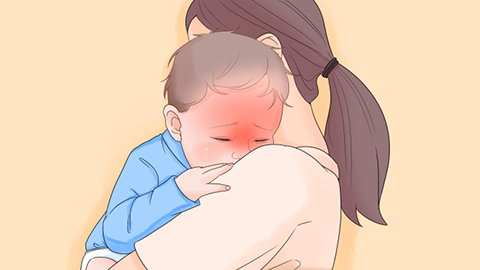What should I do if a one-year-old child has a fever of 39°C?
Generally speaking, fever refers to elevated body temperature. A temperature of 39°C in a one-year-old child may be related to acute upper respiratory tract infection, exanthema subitum (roseola), acute gastroenteritis, urinary tract infection, pneumonia, or other factors. It is recommended to seek timely general or pharmacological treatment based on the underlying cause. If symptoms persist for a prolonged period, prompt medical attention is advised. Detailed analysis is as follows:

1. Acute Upper Respiratory Tract Infection
Acute upper respiratory tract infection is primarily caused by viral infections, such as influenza virus, adenovirus, etc. Repeated viral stimulation of the body can lead to persistent high fever. Symptoms may also include coughing and runny nose. It is important to maintain good indoor air circulation and avoid getting chilled. Treatment should follow medical advice and may involve medications such as ribavirin granules, acetaminophen oral solution, azithromycin granules, etc.
2. Exanthema Subitum (Roseola)
Exanthema subitum is caused by infection with human herpesvirus 6. Failure to clear the virus promptly can lead to high fever, possibly accompanied by red skin rashes and itching. Warm water sponge baths may be used, and treatment should follow a doctor's guidance, including medications such as ibuprofen suspension drops, calamine lotion, and antiviral granules.
3. Acute Gastroenteritis
Acute gastroenteritis may be caused by bacterial infection, food poisoning, or other factors. When the intestinal mucosa is repeatedly irritated, it may cause fever, often accompanied by diarrhea and vomiting. Medications such as amoxicillin-clavulanate potassium dry suspension, oral rehydration salts (Type I), and smectite powder may be used under a doctor's recommendation.
4. Urinary Tract Infection
Urinary tract infections are usually caused by bacterial infections, such as Escherichia coli. Inflammation irritating the urinary tract can elevate body temperature, leading to high fever accompanied by symptoms like frequent and urgent urination. It is recommended to rinse the urethra with warm water and follow a doctor's guidance for treatment with medications such as cefixime granules, levofloxacin injection, norfloxacin glucose injection, etc.
5. Pneumonia
Pneumonia can be caused by pathogens such as bacteria and viruses. If the causative factors are not promptly eliminated, they may lead to elevated body temperature, causing symptoms such as coughing, sputum production, and rapid breathing. This condition may be treated with medications such as cefixime granules, ambroxol hydrochloride oral solution, and compound pediatric fever suppositories, following a doctor's instructions.
It should be noted that if any of the above medications are needed, they should be used under the guidance of a physician to avoid self-medication. Additionally, during treatment, appropriate warmth should be maintained to avoid chilling, which could worsen the condition.





